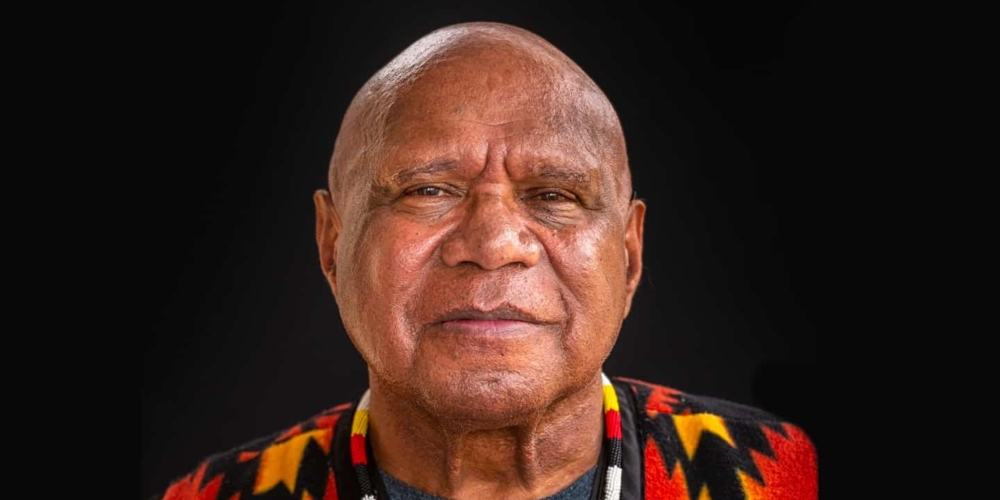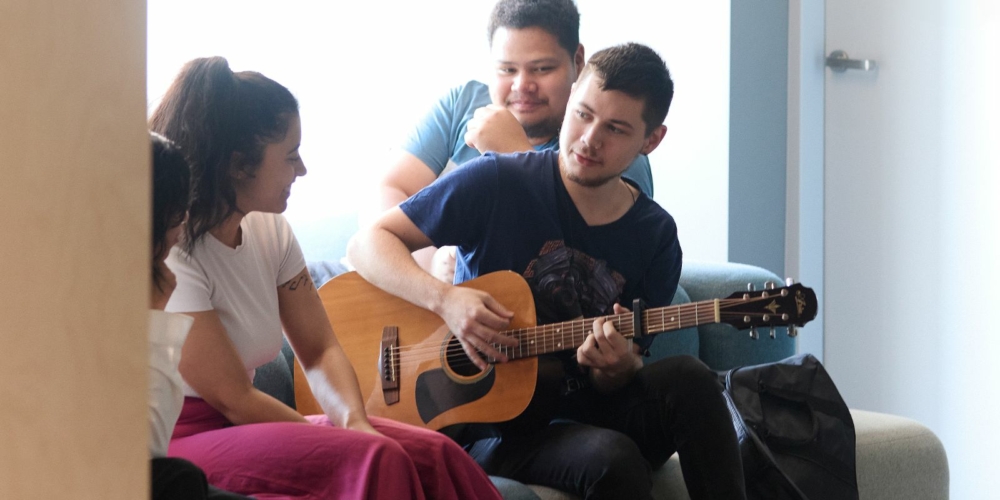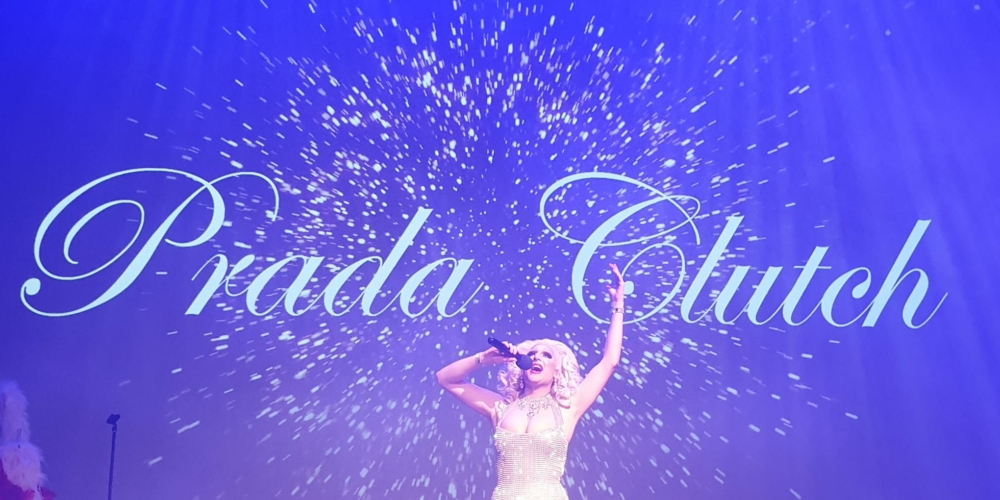National Reconciliation Week is held from May 27th June 3rd. It is an opportunity to reflect on the role we all have to play in acknowledging Australia’s proud First Nations history, the oldest living culture in the world, and the role of education in that process.
As music educators, we are indebted to the songlines of Aboriginal and Torres Strait Island songwriters and musicians and the important role these songs play in the national conversation on the disparity of lived experience between black and white Australia. Songs that continue to resonate deeply in the Australian psyche, providing a platform for greater understanding and a chance to walk in someone else’s shoes.
For many non-indigenous Australians hearing Archie Roach singing about being forcibly removed from his family as a child, on his debut album “Charcoal Lane” back in 1990, this was the first time they had any idea that this was Australian Government policy dating right back to the 1860s. We certainly didn’t learn about it at school. But it was Uncle Archie’s powerful recounting of his personal story in “Took the Children Away” that literally shook the nation into acknowledging the inter-generational trauma of the Stolen Generations, triggered a Royal Commission and, eventually, a National Apology.
And when Adam Briggs and the late Gurrumul Yunupingu reworked the song in 2014 and named-checked a stellar list of First Nations political, sporting and cultural icons – from Cathy Freeman, Patty Mills, Gavan Wanganeen, Anthony Mundine, Lionel Rose and Adam Goodes, to Sir (Pastor) Doug Nicholls and William Cooper and the man on the royal telephone Uncle Jimmy Little – we were schooled again, by a song.
While Australia still has a long road to travel on acknowledging the profound dislocation and dispossession of this single policy on our First Nations people, it’s hard to imagine any other song having as profound an impact on national truth-telling in Australian music history.
But there were many artists who lit the path for Uncle Archie – traditional and contemporary, black and white – and the history is long and proud.
In the 1950s a young Queensland jazz and blues singer, Georgia Lee, toured Australia supporting Nat King Cole, having made a name for herself in a trio with her sisters as the Harmony Sisters, performing for US Troops in Queensland during World War 2. Her 1962 album, “Georgia Lee Sings the Blues Down Under”, led to her being credited as the first indigenous artist to record blues songs. Lee’s niece, Wilma Reading, performed on Johnny Carson’s Tonight Show, had a residency at New York’s Copacabana Club and toured with Duke Ellington in the 1960s. She continues to perform and, in 2019, was inducted into the National Indigenous Music Awards Hall of Fame.
By the late 1960s, non-Aboriginal singer/songwriters were singing the songs of black Australia, embracing the spirit of the civil rights movement in folk-inspired storytelling like Ted Egan’s ‘Gurindji Blues’, written in 1969 at the height of the Gurindji land rights struggle, and the role of Gurindji elder Vincent Lingiari in the walk-off of workers over unpaid wages at Wave Hill.
That same storyline would resurface almost 25 years later, in the Paul Kelly/Kev Carmody co-write “From Little Things, Big Things Grow”:
“Gurindji were working for nothing but rations
Where once they had gathered the wealth of the land
Daily the oppression got tighter and tighter
Gurindji decided they must make a stand
They picked up their swags and started off walking
At Wattie Creek they sat themselves down.”
Kelly/Carmody © Wb Music Corp., Paul Kelly Music, Song Cycles Pty Ltd.
Considered the birthplace of the land rights movement, Wattie Creek is where, in 1975, Australian Prime Minister Gough Whitlam met with the Gurindji elder Vincent Lingiari – nine years after the labour strike at Wave Hill and granted deeds to their land. But how many of us would know that story if it weren’t for the song that turned that land rights struggle into an anthem? We certainly didn’t hear those stories at school.
When I started broadcasting, in the early 1980s in community radio and then at Triple J, I was firmly of the view that music could change the world.
Back then, it was a reggae-inspired rock band from South Australia called No Fixed Address and their powerful call to arms “We Have Survived” that was paving the way for a decade of music from the desert to the top end that rocked its way into national and international radio playlists.
From Papunya’s Warumpi Band recording the first rock song in traditional language “Jailanguru Pakernu” (Out from Jail), to Coloured Stone’s “Black Boy”, Joe Geia’s “Lil Yull” to Kev Carmody’s unflinching “Thou Shalt Not Steal” and the traditional-contemporary hybrid of Yothu Yindi calling for a “Treaty” from the depths of NE Arnhem Land – it was music that recorded the temper of the times of the 200 year anniversary of white ships sailing into Sydney Harbour.
And right alongside were the non-indigenous artists singing from the social justice songbook: from the Goanna Band’s “Solid Rock”, Midnight Oil’s landmark “Diesel and Dust” album, to Paul Kelly’s stark truth in “Bicentennial” – here was a potent soundtrack that called for Reconciliation. While politics ducked for cover on Australia’s black history in 1988, the music pulled no punches.
In the decades since there have been many First Nations artists who have generous shared their songs and songlines, carrying the oral tradition of First Nations culture as leaders and educators: Ruby Hunter, Tiddas, Dan Sultan, Christine Anu, Kutcha Edwards, Roger Knox, Troy Cassar-Daley, Jessica Mauboy, Frank Yama, the Pigram Brothers, Shellie Morris, Baker Boy, Emma Donovan, Casey Donovan, Deborah Cheetham, Emily Wurramara, Mo’Ju, Leah Flanagan, Briggs, Gurrumul, Thelma Plum, Alice Skye, Benny Walker, Ziggy Ramo, Tasman Keith, Deline Briscoe, Jessie Lloyd, Ursula Yovich, Kaiit and Kee’Ahn – to name just a few.
It could be argued that music has been our greatest teacher in our quest for Reconciliation, lifting the veil on the brutal impact of white settlement on the traditional custodians of this land, making up for classroom-taught history that told us nothing of the 60,000-year-old culture that was thriving here before ‘first contact’, just over 200 years ago. Music that speaks of connection to country, spirit of place and the oldest living culture on earth.
40 years since No Fixed Address released that call to arms, the soundtrack of Reconciliation plays on in the rich discography of First Nations artists who continue to light the way with music that asks each of us to play a role in bridging the gap between black and white Australia. To do more than sing along.
As we consider this year’s Reconciliation Week theme, More Than a Word: Reconciliation Takes Action – perhaps you’ve been inspired to research some of the artists namechecked in this piece. Or find out the traditional name of the country that we study, work and live on and take your mind to the black footsteps that pre-date white settlement.
Our Melbourne campus is on Wurundjeri Land of the Kulin Nation and home to AIM’s First Nations Community Hub. And in Sydney, our AIM campus is on Gadigal Land of the Eora People. If it sounds familiar it might be because Midnight Oil’s song of the same name – “Gadigal Land” – won the APRA/AMCOS Award for Song of the Year this year. Still singing from the social justice songbook, still fighting for that change to come.
Let music be your guide to greater understanding. It’s a powerful teacher.
Have a listen to our Soundtrack of Reconciliation on AIM’s Spotify playlist here.
Find out more about National Reconciliation Week here.
#MoreThanAWord #NRW2021
Find out your traditional country here.




